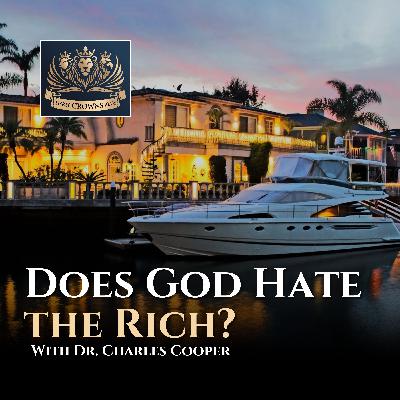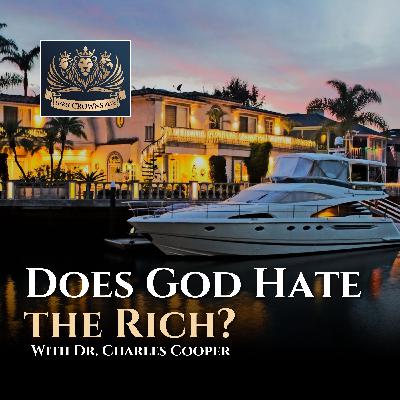What Must I Do to Inherit Eternal Life? — Understanding the Doctrine of Rewards
Description
In this episode, Dr. Cooper reframes the rich young ruler’s question: “What must I do to inherit eternal life?”—showing it was never about entering heaven but about living a kingdom-worthy life that God rewards.
He begins by defining eternal life as a measure of quality, not duration. Every soul—believer or unbeliever—will live forever, but only those who live righteously will experience eternal reward. Drawing from the Old Testament and Jewish covenantal thinking, Cooper explains that “to inherit eternal life” was reward language rooted in God’s promises to His people.
Key themes include:
Covenant Reward Language:
“Inheritance” in the Jewish mind referred to receiving what God promised through His covenant—something based on faithfulness, not birthright alone.
Deuteronomy 4 & Psalm 37:
Israel’s inheritance of the land pictured God’s future reward for those who lived justly and obeyed Him.
Daniel 12:2–3:
The resurrection will reveal differences in the quality of eternal life—some will “shine like stars,” representing faithfulness and moral righteousness.
Quality vs. Quantity:
Eternal life isn’t merely existing forever but living in a way that reflects God’s holiness and earns divine approval.
Two Types of Righteousness:
Positional Righteousness: Given by faith (like Abraham).
Moral Righteousness: Demonstrated through obedience and holiness in daily life.
The rich young ruler sought moral righteousness—a life that would please God in the coming Kingdom.
The Doctrine of Rewards:
Every believer will stand before Christ’s Bema Seat to have their life evaluated—not for salvation, but for reward or loss. Cooper calls it the pass/fail test of the Christian life.
Through this lens, Jesus’ response to the rich young ruler was not about earning salvation but about revealing what true kingdom loyalty costs—wholehearted devotion and moral faithfulness.
Timestamps & Key Topics
00:00 – The issue isn’t living forever—it’s the quality of that eternal life
00:27 – Introduction: The rich young ruler’s question reframed
01:16 – Defining the Doctrine of Rewards
02:00 – Why misunderstanding this doctrine distorts Jesus’ message
04:00 – Matthew, Mark, and Luke: three perspectives on the same encounter
05:00 – “Inheriting eternal life” as covenant reward language
07:00 – What inheritance meant in Jewish covenant theology
09:30 – Deuteronomy 4 & Psalm 37 – inheritance of the land as a promise
13:00 – Daniel 12: Resurrection as fulfillment of God’s covenant
15:00 – Faithful vs. unfaithful believers—who “shines” in eternity
20:00 – Resurrection and reward distinctions
22:00 – Every person lives forever—but not all experience the same quality of life
27:00 – Two kinds of righteousness: positional vs. moral
30:00 – The Bema Seat: “How do I pass the test?”
32:00 – Misunderstandings about judgment and rewards
35:00 – The rich young ruler’s real concern—quality of eternal life
36:00 – Preview of next episode: Jesus’ response to the ruler’s question
Scripture References:
Matthew 19:16 –22
Mark 10:17 –31
Luke 10:25 –28
Deuteronomy 4:21
Psalm 37:9–34
Daniel 12:2–3
Romans 9:13
Revelation 20:11 –15
Episode Notes Recap:
Week 3 of the Does God Hate the Rich? series:
Clarifies that “eternal life” = quality of life, not duration.
Defines inheritance as reward within the covenant.
Explains moral vs. positional righteousness.
Warns that careless living forfeits reward.
Prepares for Week 4: Jesus’ response to the rich young ruler’s question.
Connect & Share
📧 Contact: info@3cplus.org
🎧 Subscribe wherever you listen to podcasts







